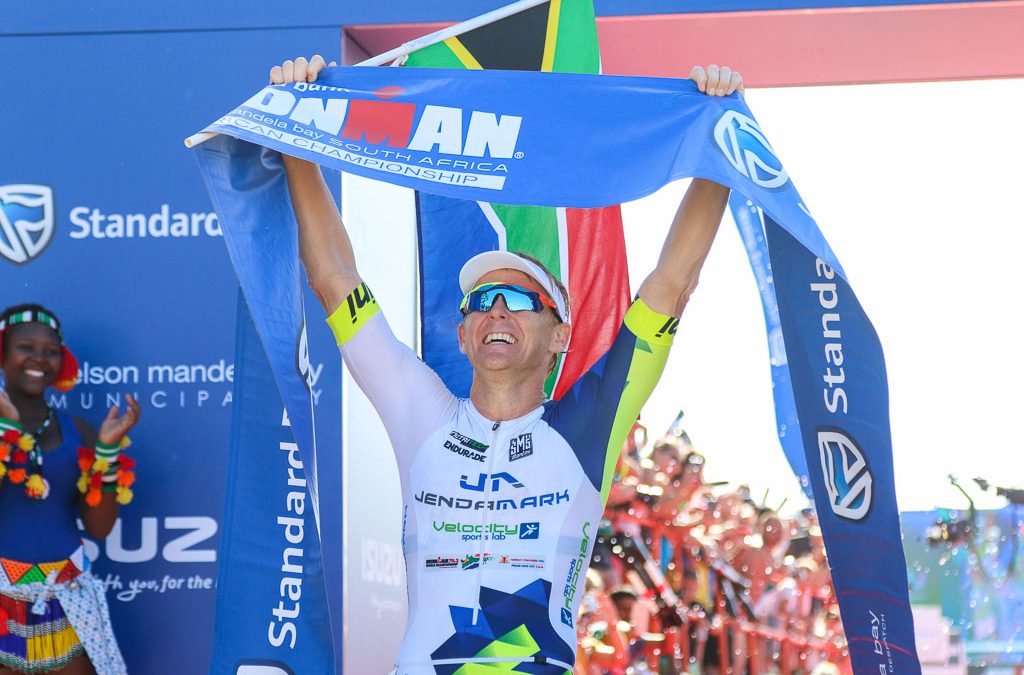Jendamark-sponsored Ironman African champion Kyle Buckingham shares the highs and lows of being a professional triathlete and what makes him take on these super-human feats of endurance.
Q:You and Jendamark share the same home town of Port Elizabeth. What makes the city such a great training ground for you?
A: There is a lot of variety on my bike rides; I can practise on the Ironman Africa race course or head outside the city to tackle some hills. There is also great running where I live in Sardinia Bay. Plus, there’s a handful of quality pools to choose from for my swim and, of course, the Indian Ocean.
Q: What drives you to push the limits of your physical endurance in not one but three disciplines?
A: I love the challenge. I didn’t get the opportunity to try out any other sport beside Ironman when I was younger. I came across it by accident and found I was pretty good at it after finishing my first race.
Q: What has Jendamark’s sponsorship enabled you to do in your career?
A: My sponsorship with Jendamark has allowed me to train full time as a professional triathlete and race not only in South Africa but abroad too.
Q: What does your average training day look like?
A: On a typical day, I will train for at least six to eight hours on all three disciplines. I start with my bike ride – anywhere between two and seven hours. Then I head to the pool at lunchtime and swim four to five kilometres. After lunch I will have an afternoon sleep to recover before finishing off my day with a 45 to 90-minute run in the evening.
Q: How do you fuel your training? What does your daily diet look like?
A: I have pretty normal meals, consisting mainly of good proteins, high fats and lower carbs. When I train, I use energy drinks to help with electrolyte replacement and calories. I burn between 3 000 and 6 000 calories per day. I also take a recovery shake to add a larger number of calories into my diet than food can.
Q: How many pairs of running shoes do you wear out in a year?
A: I go through roughly five pairs of running shoes for training and I use a brand-new pair of racing shoes for every race. So that’s about another four or five pairs of racers.
Q: When you’re struggling on the run/swim/cycle, how do you motivate yourself? What do you think about during those long hours?
A: I think about winning my next event – it is always on my mind. When racing, I think about those long hard days in training that I do. I also think to myself that, when my race career is over, I want to look back and say that I gave my best effort – and not that I should have trained harder!
Q: Was winning the Ironman Africa Championship in your hometown the high point of your career so far?
A: Absolutely, YES!
Q: What’s your favourite memory from the day?
A: My favourite memory is running past my family on Marine Drive. They were all screaming for me and telling me I look amazing, and I just kept thinking, “I feel incredible. I feel like I am walking on water.”
Q: What are some other career highlights?
A: I will never forget the feeling of winning my first-ever Ironman at Ironman Lake Placid in 2014 in my first year as a pro. Another highlight was taking the overall course record at Ironman World Championships in Kona as an age-grouper in 2013 – and still holding that record today.
Q: What has been one of your serious lowlights? And how did you move past it?
A: In October 2017, I had a very upsetting race at the Ironman World Championships in Hawaii. I was in the absolute best shape and form of my life. Predictions and numbers were showing that I should be in a great position to finish top 10 overall. Then my race didn’t go as planned. I had a mechanical on the bike and was the last male pro to finish that leg. Looking back, I might have also picked up a virus that I didn’t know I had. On the morning of the race I could not stop sweating, which, looking back, should have been a red flag for me. The night after the race I was extremely ill and almost couldn’t catch my return flight home. I was sick for an entire month and slept day and night for the first five days. To get over the disappointment, I had to remind myself why I chose this sport and of the love I have for it. I also had to remind myself that I have a lot of people who support me and surround me with so much positivity. This encouraged me to get my fight back and start my training again.
Q: What are your plans and major goals for 2019?
A: My number one goal is to defend my title at Ironman African Champs in April and also to improve my position at the Ironman World Champs in Hawaii.
